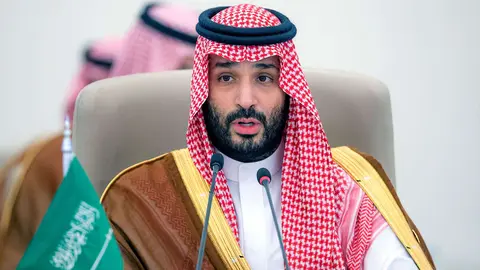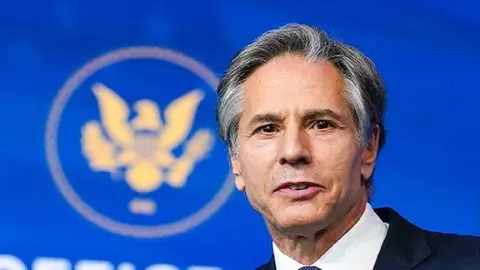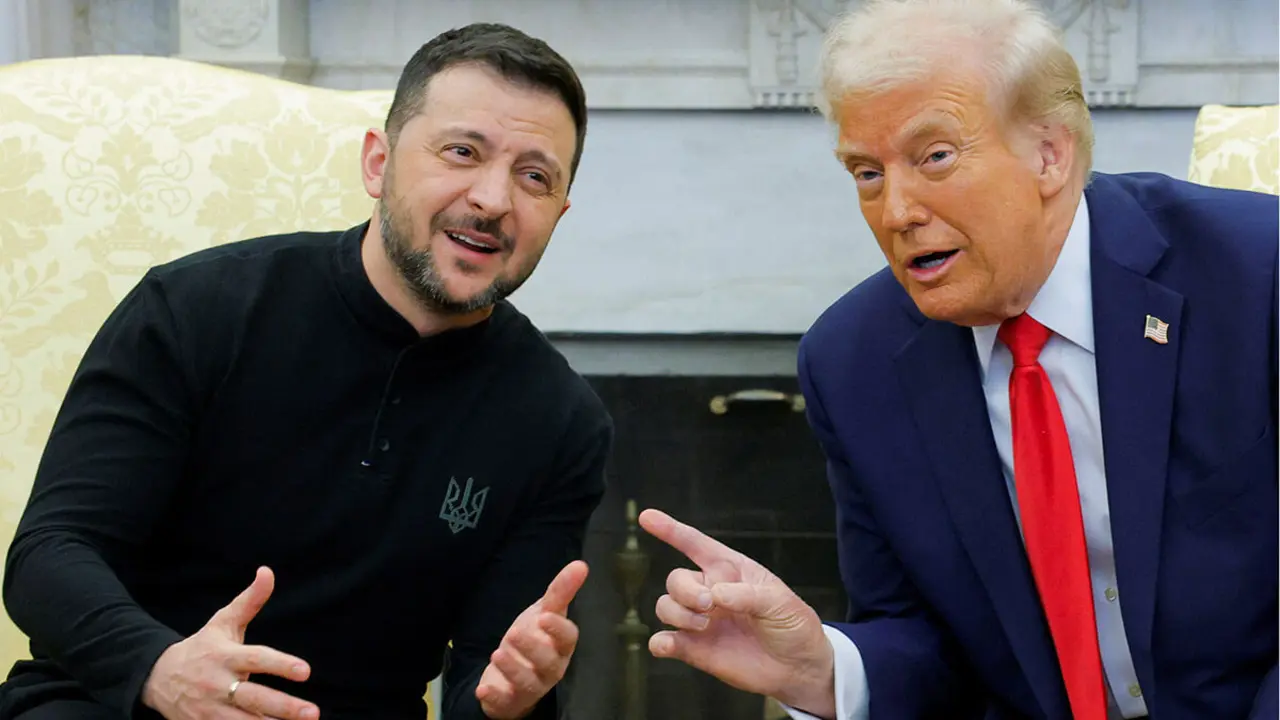The vulnerabilities of Saudi Arabia’s normalisation with Israel

The US administration was keen to leak to the media its vision of the rewards it is seeking to offer to Saudi Arabia in exchange for normalisation of relations with Israel.
In a lengthy analysis by Reuters published last week, informed US administration sources indicated that Washington is prepared to commit itself to a defence deal with Saudi Arabia that would be less than a NATO-type defence pact. In such pacts, an attack on a member state is considered an attack on the whole North Atlantic Alliance. This kind of arrangement is specific to Europe. It combines inter-European commitments, heeding the lessons of two devastating world wars, with a US commitment to preventing a westward expansion of the former Soviet Union or the expansion today of the war in Ukraine at the hands of Russia, the direct heir of the USSR.
There are different reward options. One such an option would be to forge an agreement similar to the one between the United States and Israel. Another option would be to aim for a formula akin similar to the “non-binding” agreement which Washington recently signed with Bahrain. A third option would be to go for the type of defence agreements signed by the West with allied Asian countries as a precaution against the military threat of Russia, China, or North Korea.

All these options appear to be on the table with the proviso that none of them would reach the level of a binding defence treaty. It is difficult to imagine the US Congress passing such a defence pact with Saudi Arabia or any of the Arab Gulf states. The “non-binding” agreement with Manama, that provides for US intervention to defend Bahrain after prior consultation and assessment of available options, seems to be the preferred formula. But using the Israeli-American model as a basis for Saudi’s Arabia agreement with the US is also an option.
There is no doubt that the Saudi leadership began its negotiations with the United States by suggesting a treaty option, even if it knew in advance that this was not plausible. Like any smart negotiator who is aware of the importance of the bargaining chips in his hand, Riyadh raised the ceiling of its demands regarding the rewards it sought in exchange for the recognition of Israel and acceptance of full and irreversible normalisation with the Jewish state. Saudi Arabia wants a lot in exchange, especially since it is dealing with a US administration which came to office advocating plain hostility against Crown Prince Mohammed bin Salman, personally.
It would be one of the ironies of contemporary history if the Joe Biden administration, which has started its term in office with a display of animosity against Riyadh, would end up signing a basic defence agreement with Saudi Arabia. The credit for that should go to the Ukraine war and oil market pressures for tamping down the ardour of President Biden and his administration.
The Saudi leadership does not appear to be in a rush to clinch a defence deal with the Washington. Almost all is calm on the Iranian front since the China-sponsored normalisation deal between Riyadh and Tehran.

The Iranians have no intention of escalating tensions with the Saudis, even if they have left the Houthis enough room to manoeuvre and to take initiatives on the ground, as demonstrated by the recent drone attacks on Bahraini forces participating in the Yemen war, or by their show of force on the outskirts of Taiz.
There are however vulnerabilities in the basic framework of the Saudi-Israeli normalisation deal being hammered out in exchange for some type of defence agreement between Washington and Riyadh.
The first of these vulnerabilities has to do with the Saudi view of the trade-offs. Riyadh does not view Israel as a prospective regional partner in any strategic or technical field. This is contrary to the approach pursued by the Arab countries which signed the Abraham Accords with Israel. Considering the way Saudi Arabia has dealt with the countries of the region over the past few years, Riyadh is acting in a purely transactional manner. It is making overtures to countries of interest for a limited period of time or based on temporary political or economic considerations until it reaches its objectives. This is followed by a phase of unsettling coldness in relations, as is undoubtedly the prevailing feeling among members of the Arab quartet after ties with Doha were restored at the 2021 Al-Ula summit.
Normalisation with Israel is accordingly a strategic bargaining chip to reach an agreement with the United States and not a transformative move in the Middle East making Israel a full-fledged member of the region's make-up.

This is very similar view to Qatar’s view of normalisation with Israel more than 20 years ago. At the time, Doha suggested to the Israelis that it could serve as their gateway to the region. But once it was able to obtain Washington’s political support and persuade the US to move its military bases from Saudi Arabia to Qatar, it turned against normalisation with Israel and aligned itself with the Palestinian position. It did so politically and in the media, through the Al-Jazeera, a TV channel which played a major role promoting normalisation before shifting to a hostile attitude towards Israel.
There is nothing preventing the Saudis from re-enacting the same scenario. Riyadh could initially suggest its agreement to a full normalisation deal, then content itself with the trappings of diplomatic representation and the symbolism of limited contracts, which it could cancel anytime. But an astute politician like Israeli Prime Minister Benjamin Netanyahu will not fall for such a stratagem. He is likely to find his way to securing his share of the rewards, from both the Saudis and the Americans.
The second vulnerability is a bit more complicated. If the US administration chooses the model of the Bahrin agreement, this will place Saudi Arabia, a country of great human and military capabilities, on a par with a little power like Bahrain, always waiting for some ally to protect it.
But if the Biden administration decides that the best model that suits Saudi Arabia’s capabilities is the US-Israel model, that is, one of sizeable military support and large supplies of advanced weapons, which would make the difference in any showdown with Iran, then another problem will emerge. This will have to do with the sharp contrast between the Saudi and the Israeli military doctrines. No matter how much advanced weapons Washington will provide to Saudi Arabia, the kingdom will definitely hesitate to use US supplied military equipment against a fierce enemy like Iran.
At the opposite, Israel, as demonstrated by its almost daily bombing of Iranian targets in Syria and western Iraq, uses the best of its American arsenal, especially the advanced F-35 stealth bombers, to strike Iranian targets. Israel’s actions are based on the notion that Iranian missiles and drones in the hands of Hezbollah and its proxy militias in Syria are likely to be directed at Israel in any upcoming, and probably inevitable, military confrontation.

Saudi Arabia does not want the replay of conditions that would make possible new attacks similar to those on its oil facilities in Abqaiq in 2019. From Israel’s perspectives, there are no ambiguities about the response it would reserve for any targeting by Hezbollah or Iraqi and Syrian pro-government militias of its vital installations. It considers Iran’s hand to be behind every showdown with the Palestinians, while Gaza and its population end up paying the price.
The Israeli- American model is hence not entirely suitable for Saudi Arabia. Providing Riyadh with advanced weapons, intelligence and political support is not enough for the Saudis to respond to any Iranian aggression. Saudi Arabia will always wait for its US ally to intervene on its behalf. Since the days of Donald Trump, the US has promoted the notion of Gulf states bearing a share of responsibility for their own protection as part of a joint defence arrangement in which Washington does not shoulder all the burden.
The third vulnerability is related to the Saudi position on Iran. This is an unresolved issue. The Beijing handshakes between the Saudi and Iranian foreign ministers, their visits to each other's countries and the opening of mutual embassies have offered no more than appeasement. The real position of Riyadh was expressed by Prince Mohammed bin Salman in his recent television interview with Fox News, when he talked about his desire for some kind of balance of nuclear terror if Iran were to obtain an atomic weapon. This is a true measure of Saudi Arabia’s level trust in Iran, which amounts to nil. We have no trust in Iran, the Saudis seem to say. Tehran knows this, and will not stand idle in front of an agreement between Saudi Arabia and the United States, which it sees as a major threat to its ambitions in the region.
The fourth vulnerability is hardly a secret. It has to do with the Palestinian issue. The Palestinians, whether Fatah or Hamas, have so far remained silent about the looming Saudi-Israeli normalisation. One remembers their verbal outbursts against the signing of the Abraham Agreement, but the Palestinians are likely to be more cautious when it comes to Saudi Arabia. Also, Riyadh has tried to assuage the fears of the Palestinians with diplomatic talk about the centrality of the Palestinian issue, its commitment to the Arab initiative of 2002, and by accrediting a non-resident ambassador to the Palestinian Authority. But everyone knows that Saudi Arabia will not hesitate some day to put the Palestinians and their cause aside. Abraham Accord member-nations can ignore the reactions of the Palestinians. But to what extent can Saudi Arabia remain silent in the face of Palestinian, Arab, popular and Islamic criticism, especially now that it has engaged in normalisation trade-offs based on a talk about the centrality of the Palestinian issue.
There is a window of a few months left until the US presidential election campaign reaches its apex. During this period, Saudi Arabia needs to design policies and decisions that remedy its vulnerabilities. It cannot leave things to chance, to unforeseen regional and international developments, or to Houthi or Iranian blackmail.
It is clear that the Saudi leadership has so far carefully its crafted plans, which have brought the Biden administration to Riyadh’s doorstep and cleared the path for the Saudis to raise an issue which has long remained a taboo.











